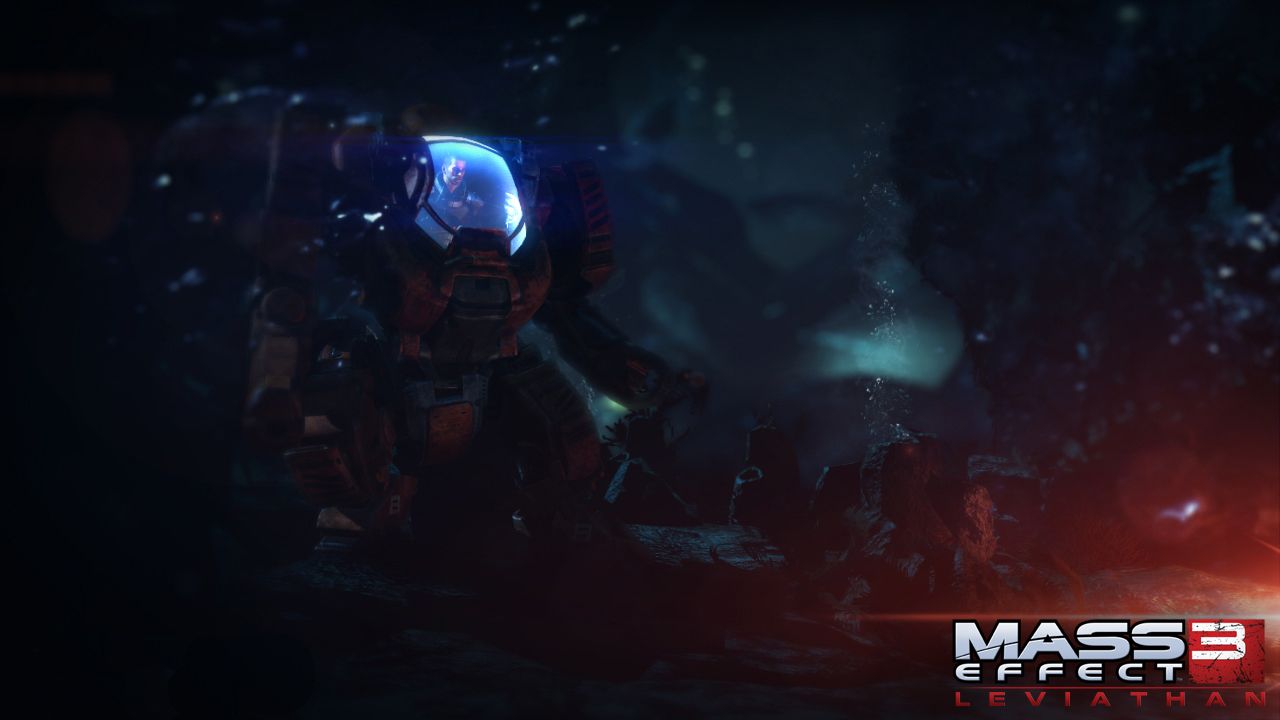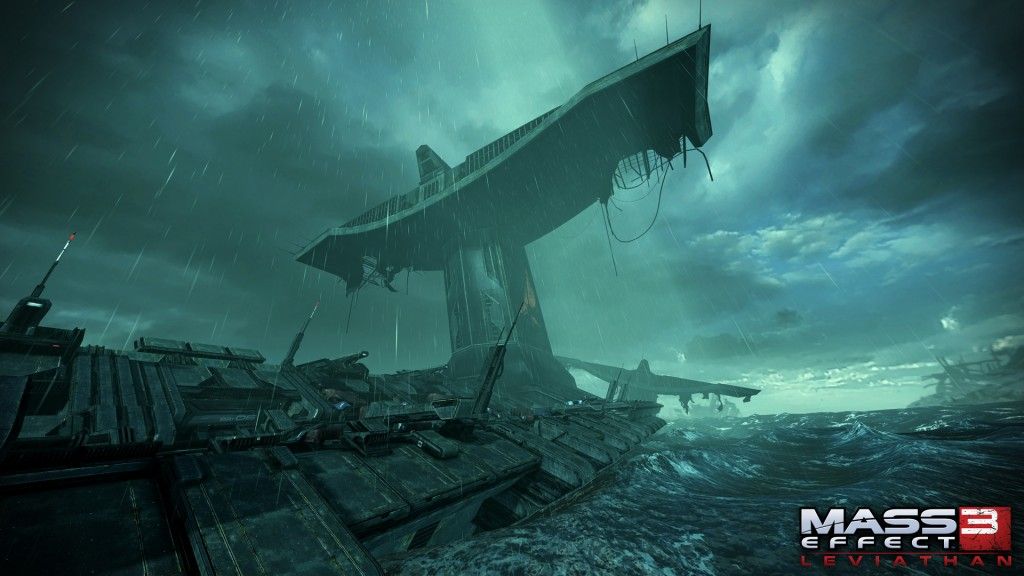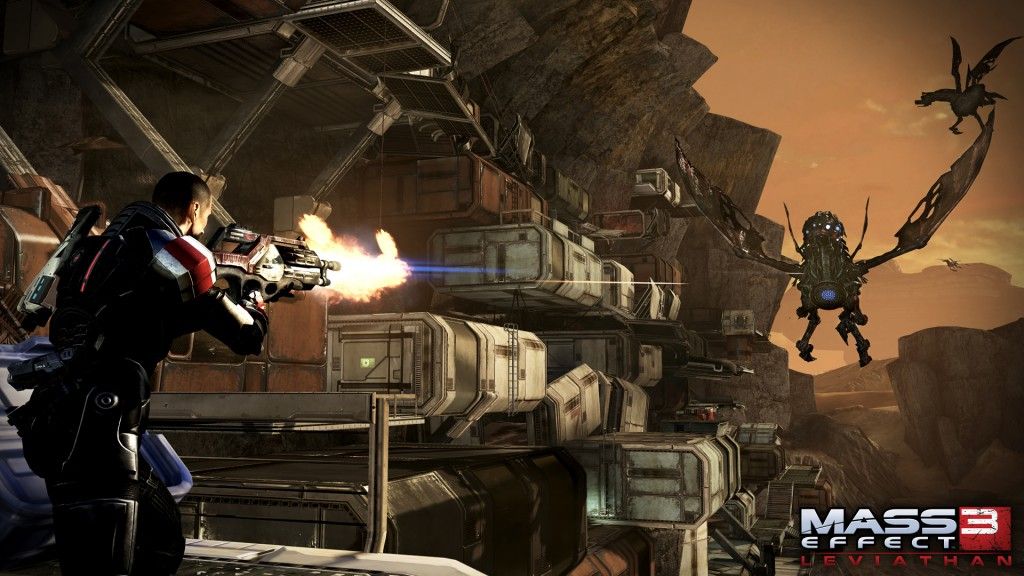Mass Effect 3 set a few precedents this generation, both during and after its tumultuous launch. The tumultuous nature of the launch grew around the public relations disaster surrounding the game’s ending. Prior to my employment here at DualShockers, I wrote my own review on Mass Effect 3’s single-player campaign. (Our review, written by Chad, can be found here.) While the ending was initially not up to par in my opinion, the other 99% of the campaign was a fantastic experience for me; both gripping and emotionally compelling.
The single-player downloadable content, From Ashes, expanded upon the history of the Protheans and added a new squadmate, Javik. I was more or less intrigued by this additional story, but I felt that the game was able to stand on its own two feet, regardless of the additional story and character. The recently released Extended Cut served to expand on the ending and fill in necessary plot-holes, delivering us the complete story that we both needed and deserved last March.
After all this, amidst a sea of multiplayer scenarios and DLC added since the game’s launch, Leviathan is the first DLC for the single-player campaign added since that time. The story involves Shepard and his crew investigating leads pointing to the possible existence of an entity that one Fox Mulder Dr. Bryson believes may have killed a Reaper. The prospect of encountering…something, which could turn the tide of the war, is an opportunity that Shepard and his crew cannot pass up.
Much like the rest of the Mass Effect franchise, Leviathan seems to be derived from numerous established science-fiction franchises. There are characters, events, and cutscenes reminiscent of Star Trek: Deep Space Nine and The X-Files. Additionally, there are science-fiction-horroresque segments reminiscent of Alien, and the climactic chapter of the DLC has a lot in common with The Abyss.
Despite the very appreciated and tasteful references to film, the content is a mixed bag. Leviathan’s strengths lie in the presentation and the soundtrack that compliments each cutscene and action sequence. The score, produced by Cris Velasco and Sascha Dikiciyan (both of whom collaborated on the score for Mass Effect 2’s Stolen Memory DLC), at times surpassed some of the best sequences used in both Mass Effect 3 and its predecessor.
The cutscenes contained some pretty good dialogue and were accentuated by some pretty unique sound design, adding tension and emotion. This was helpful as the story was otherwise pretty vapid when it came to the involvement of the actual Mass Effect cast of characters. EDI, Steve Cortez, and James “I hack consoles to watch basic cable” Vega have interesting roles in the DLC. For the most part, however, the story seemed to be built around the borderline obsession and drive to defeat the Reapers that exists at the core of every Shepard character. Those who are looking for a more character-driven story a la Lair of the Shadow Broker will be a little let down. It was clear that the goal of this DLC was to enhance the plot of the main game and expand on certain mythologies that had, until now, remained very vague.
I would not argue that the action sequences were weak in and of themselves, but rather that they simply fail to adequately compliment such a well-directed story. A good cutscene and subsequent action sequence should both feel like they complement one another. In the case of Leviathan, these sequences are quainter than anything else, as they are no different from those found in the main campaign. Aside from some interesting escort gameplay, and maiming armies of Brutes and Banshees in a mech, there is not much to be found here. Speaking of mechs, the underwater gameplay inside of the mech lasted all of five minutes. A huge letdown considering how well the environment, and, once again, the score, complemented the experience.
A good amount of the gameplay that the player partakes when there is no shooting going on revolves around different types of investigation and detective work, and I really think that this should have been the core of the DLC. The search for the unknown, for the truth, is what reminded me of The X-Files when I was playing through Leviathan. The X-Files was never an action-laden show, and I felt that Leviathan could have possibly taken more cues from that IP in that regard. The cat-and-mouse dynamic that the player engages when they are piecing together information and getting closer to Leviathan itself was much more interesting than the run-and-gun combat which at times made the DLC feel like it was just another day at the office.
There are some great story elements, and some of the most cinematic and well-directed cutscenes I have seen in the Mass Effect franchise. The impact on the ending is essentially nothing to write home about, as it only serves as an addendum to the additional expository dialogue added in the Extended Cut.
There are a few perks and upgrades that can be picked up and utilized throughout the rest of the single-player campaign, but the seemingly overwhelming amount of people who have picked up this DLC have probably already completed the campaign, making these new additions to the weaponry upgrades – and one new power: Dominate – almost useless. The developers have mentioned that the success of this DLC will determine whether there is more to come in the future. This is certainly a great start, and for what it is in and of itself, the missteps in the combat are far outweighed by the fact that Leviathan transcends being simply another ten dollar, three-hour long story, and becomes an experience.



